If you often find yourself having trouble letting go, you might have an inner hoarder.
I know, I know, maximalism is in…but that isn’t the same as “clutter collecting”, also known as keeping too many things you rarely use. Some of us have a little more difficulty letting things go than others, and there are a variety of reasons. Many are good reasons, but a good reason with a negative outcome means it might be time to help tame that inner hoarder.
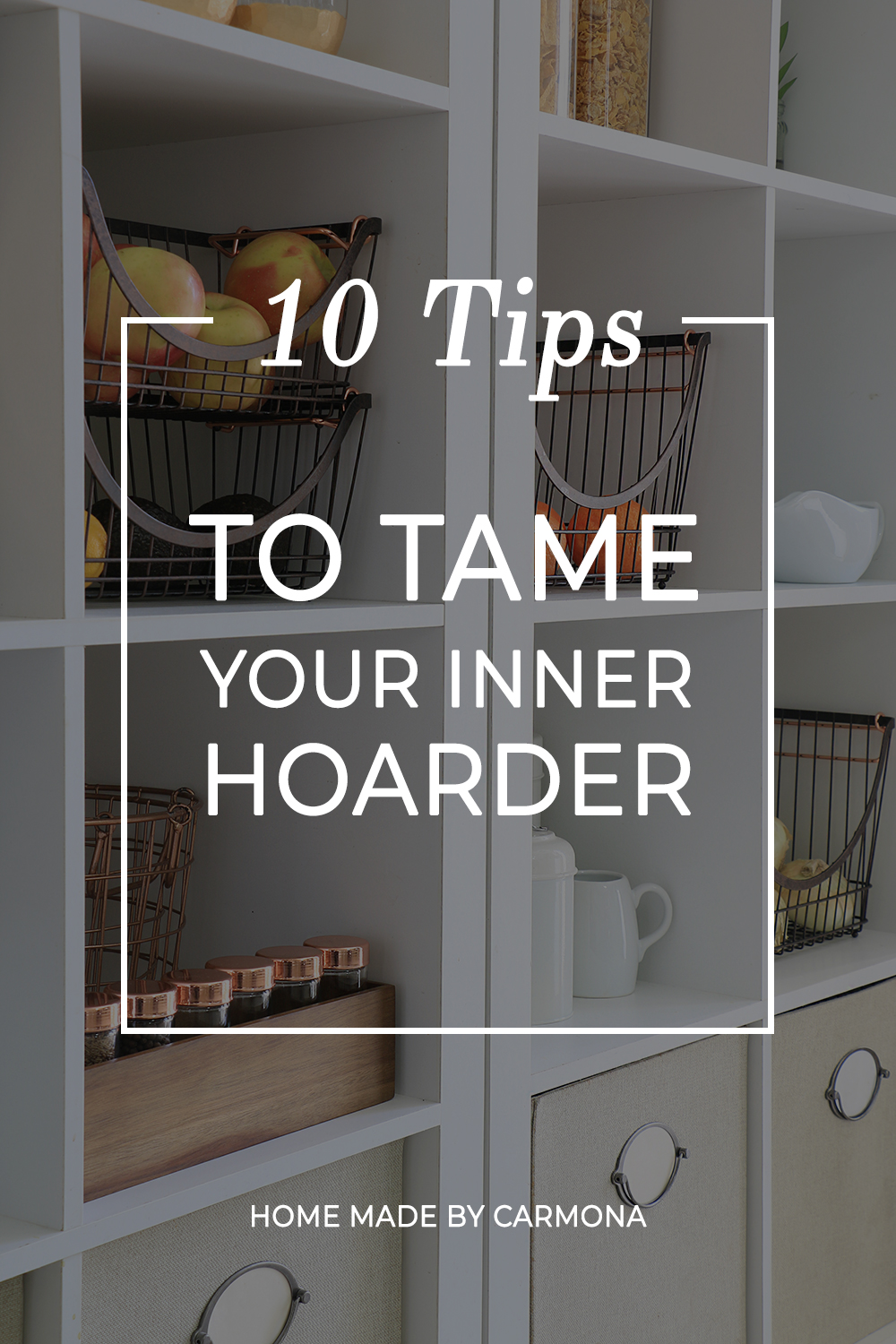
How Do I Know I Might Need A Change?
When a habit interferes with your relationships (does someone find it annoying?), OR reduces the cleanliness of your home, OR you just have lots of things you can’t find a space for.
Mild Hoarders & Organized Hoarders: You can be an organized hoarder with numerous bins of things you rarely use, or you can be someone who can’t seem to get a handle on the organization of your home due to too much stuff. There are definitely levels of hoarding, and some of us might just be collectors who baby our hoarding tendencies only for certain items.
Serious Hoarder: Of course there are also instances of hoarding that occurs due to ADHD, depression, dementia, anxiety, OCD, or some impairment. In those cases the result can become extreme and lead to piles throughout the house. In those cases the trash cleanup becomes a real issue, along with pests and mold. It is a health hazard for the occupants and pets, not to mention a fire hazard. Then the inability to change the situation often requires professional help. Learn more about hoarding disorder here>>
For those who deal with challenging disorganization, here are a few ideas to help get rid of our hoarding tendencies.
Here are some solutions to help make a change.
1. Create Dedicated Storage For Everything
Only keep what you have room for, and can keep attractively.
That means finding space for everything in your home, and making the hard choice to let go of anything you can’t find a proper spot for. And, yes, that means no stacked bins in the living room, or more dresser drawers in the bedroom than is normal, or messy piles in the basement.
As you continue to tackle spaces, you’ll likely keep moving things around you are reluctant to let go of, but if you can’t find a place for it that makes sense and is attractive, you’ll need to start to come to terms with letting it go.
If you are an organized hoarder, really put an emphasis on the “attractive” part of this challenge. Make sure each room in your home is serving the correct purpose, and not starting to look like a storage locker. This may sound extreme, but try to make the rooms look like spaces in a magazine… it gives you a normalcy to shoot for.
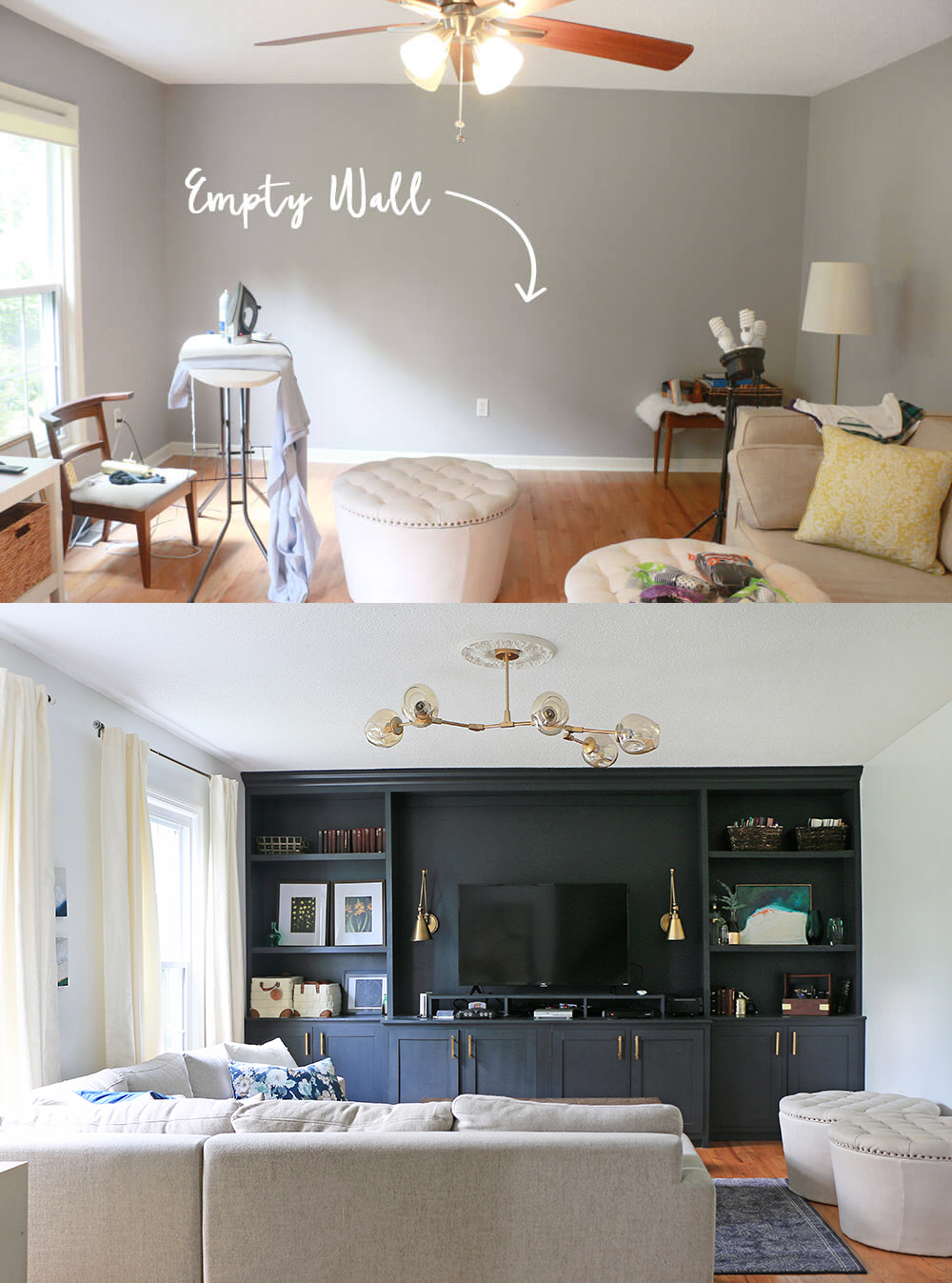
2. Set Goals, Limits, & Grant Rewards
GOALS: Set attainable goals in bite-sized amounts with reasonable times associated with it. Write them down on paper or keep track digitally with a digital reminder. If you set too lofty of a goal, your chances of achieving it is reduced and discouragement can set in. When you achieve goals it encourages reaching for the next step.
LIMITS: The real battle is in the habits we create, so set realistic limits on what you allow yourself to keep, what you are allowed to buy or salvage. Determine you are only allowed to buy/keep ‘x’ things at a time, if you sell/give up ‘x’ many things.
REWARDS: What you are taking on isn’t easy, and progress fatigue can set in at any time and derail your progress. So give yourself some rewards!
Or allow yourself the privilege of one new thing after having organized and decluttered an entire space. It doesn’t have to be an entire room, it could a whole closet, or a particularly large pile.
3. Take It One Project At A Time
This isn’t going to be a quick process, but take it one space at a time, and be really dedicated to tackling it to completion. Set aside a timing that works for you (eg. 1x /week), block it off in your calendar, and do it no matter what.
This is important because as you make progress, you also form habits of tidiness and keeping only what you really need.
4. Donate To A Good Cause
Some of us experience anxiety or distress at giving up items. Whether we believe it may one day be useful, associate it with happy memories, or just like it.
The honest truth is that one day we MIGHT look back and wish we had kept that item, and it DOES have wonderful memories for us, and bring us a sense of happiness… BUT it can help to know someone else is making good use of that item.
For the organized hoarder, selling items online is a rewarding exchange. But you can also give collections/supplies to people with similar hobbies who can’t afford the materials. It’s a real feel-good moment!
5. Bring In A Professional Organizer
Sometimes tackling a big organizing project can be overwhelming and emotional. Let’s be honest, going it alone might mean slow going.
If you find yourself overwhelmed and not knowing where to start, a pro might be just the thing you need. Bringing in a professional organizer to help you with decluttering sessions could be the solution you need.
Or a professional cleaner even a junk removal team once you have sorted through items, will be a huge help… As scary as the prospect might be, this is the quickest solution to give you a fresh start.
Just remember that after that, the intentional work of changing your habits has to begin in earnest! Otherwise you’ll just wind up doing it all over again.
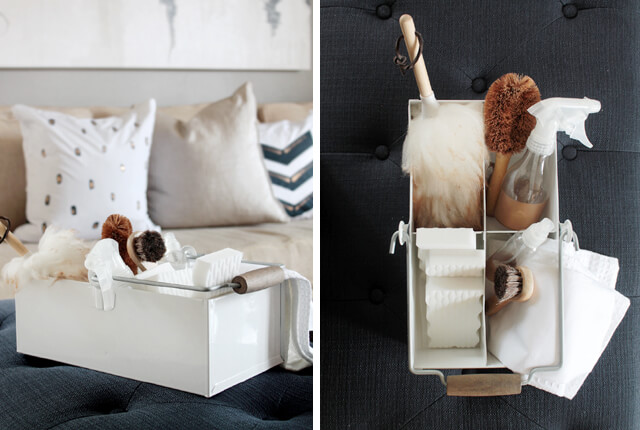
6. Invite Guests / Overnight Guests
Invite guests regularly over to your home, and not the same people every time. Nothing reveals to us how our living spaces function quite like having people over. Especially overnight guests!
This is also a great way to give a motivational bump to our cleaning and organization effort. When I know I have guests, panic cleaning speeds up the process considerably… even when that means a couple closets might be stuffed with the things I hope no one sees. The rest of the house usually improves pretty impressively! Most of us don’t want the shame of guests who have never come to our house before seeing a disaster.
Schedule dinner guests every couple months (at the minimum), and overnight guests at least once or twice a year.
The organized hoarder will also have to find room to occupy guests, and find ways to create some normalcy in their homes.
7. Share Photos & Successes With Your Inner Circle
This tip is really about finding ways to hold yourself accountable, and much like the previous tip, find motivation as much as accountability.
Take photos of the spaces before, during, and after. Seeing that progress, and sharing your journey with encouraging trusted friends will help you build pride in your accomplishments, and motivation to continue. Share with an inner circle, family member, or to Facebook / Instagram friends you know will be uplifting.
This is helpful both for the disorganized hoarder and the organized hoarder!
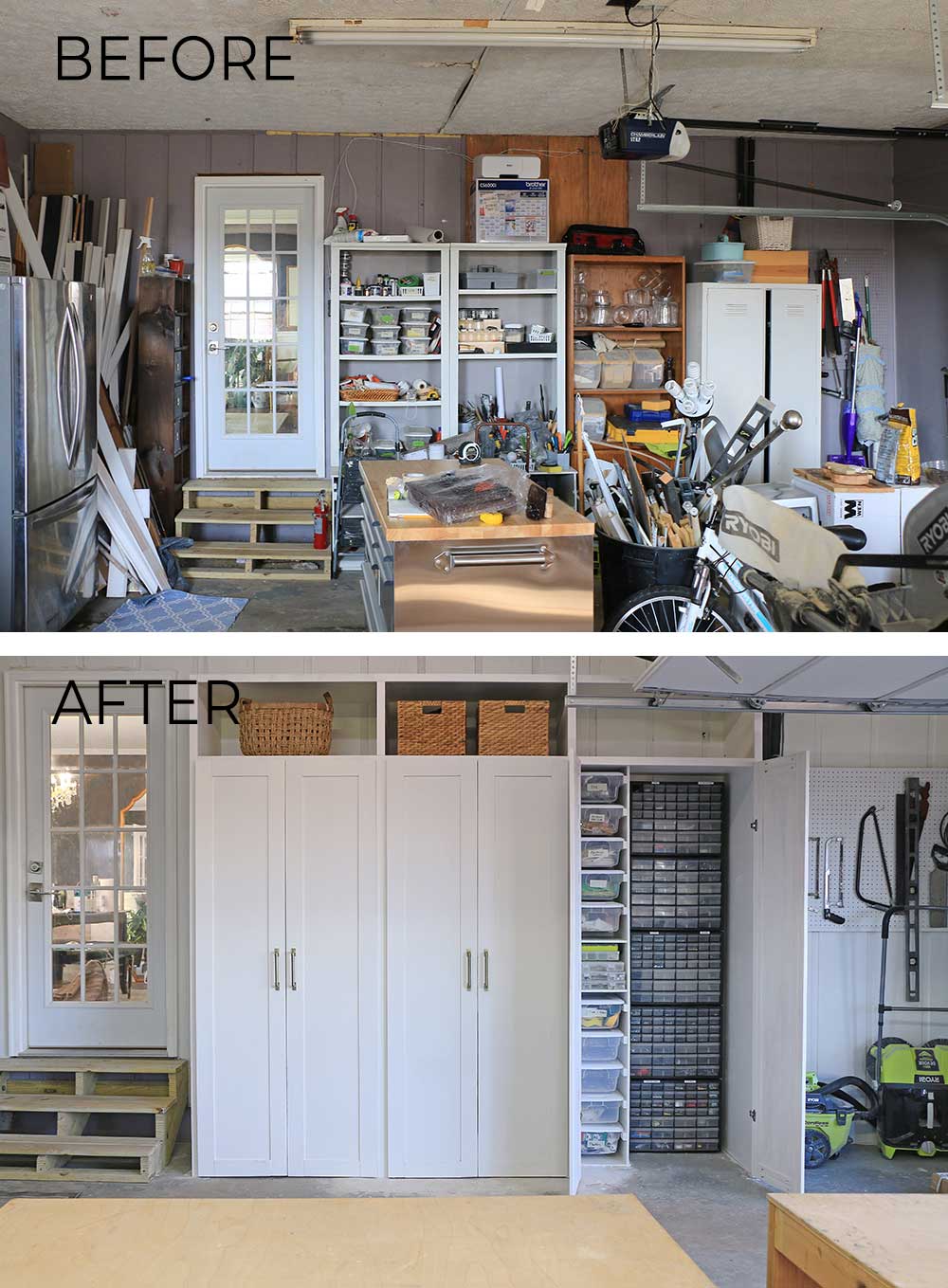
8. Create A Routine
Get into a habit of tidying and organizing.
To do that, you need to create consistency for it to become habit. Choose a consistent time to do so each day. Set up a block of time so you don’t overdo it and get work fatigue. Set a digital reminder, and give yourself a reward or something to look forward to when the time is up.
Enable small positive daily habits by making it easy to do. Make it easy to keep things clean, and store things properly. If you find it hard to hang that coat up when you walk in the door, install hooks instead. Use helpful hacks to make routines easy.
As for the organized hoarder, they need to create the routine of giving rather than gaining.
9. Change Your Mindset with Mind Hacking Techniques
Reprogram your thinking, thus affecting your habits and actions, thus affecting your life. Positive speaking, leads to positive thinking, leads to positive feelings, leads to positive actions. So find ways to make organizing, decluttering, and letting go a positive thing.
A few ways to do that might include:
- Connect with others excited about organizing/purging
- Follow people doing the same thing on social media to see their progress, successes, and inspirational imagery
- Counsel someone else with a similar issue who might not be as far ahead as you. By helping and encouraging someone else, you help and motivate yourself
- Gamify progress: track your progress digitally, and set reward to help reach goals
Crazy as it sounds, science shows that when we can change how we think about something, we can change who we are.
10. Get Support & Therapy
Let’s face it, there is the mild case of a hoarding tendency, then there are behaviors that indicate a true hoarding disorder closely tied with our mental health, OCD, and anxiety disorders. There are therapists who can help and treatment programs to help you avoid the overwhelm, and give support and necessary tools.
Even mild anxiety tied with our hoarding tendency might benefit from the tools a professional can provide.
We should posses our possessions, and not allow our possessions to posses us.

Recommended Reading: Learn how to manage the emotions behind decluttering your home from expert Tasha at Kaleidoscope Living.
Here are some great organizing posts to help you get started! Including this Home Management Binder to help you create goals and keep track of life:
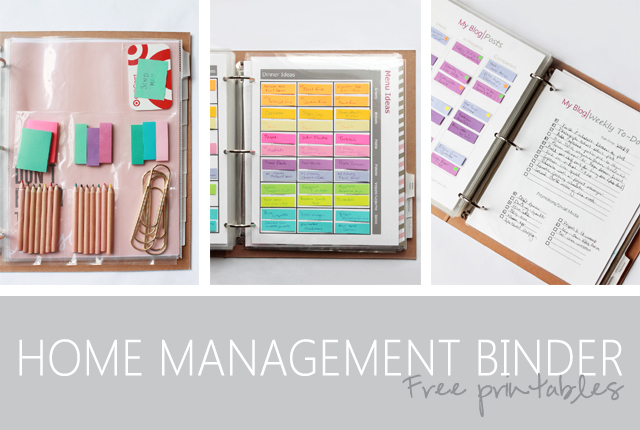





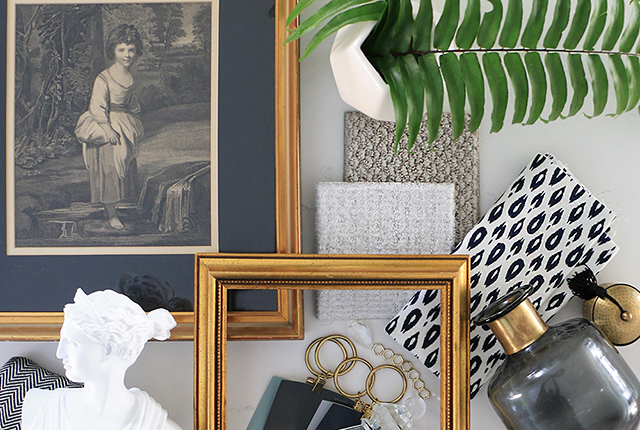
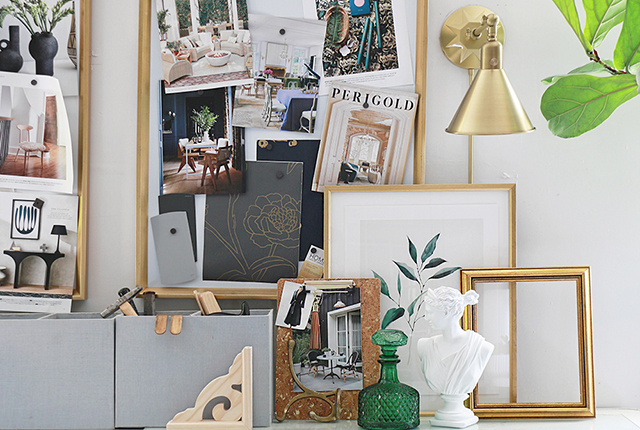


Great tips!! Thanks for sharing!! 🙂